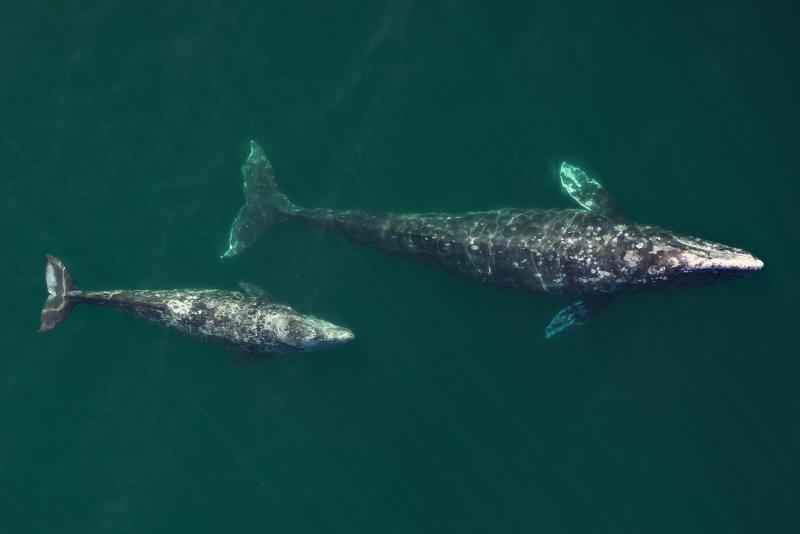Celebrating 50 Years of the Marine Mammal Protection Act

NOAA Fisheries marks 50 years of marine mammal science, conservation, and recovery under the Marine Mammal Protection Act.
 Gray whales were nearly hunted to extinction by commercial whaling. Protections under the MMPA, ESA, and the end of commercial whaling have allowed the species to recover. Credit: NOAA Fisheries (Permit #19091).
Gray whales were nearly hunted to extinction by commercial whaling. Protections under the MMPA, ESA, and the end of commercial whaling have allowed the species to recover. Credit: NOAA Fisheries (Permit #19091).
Fifty years ago in 1972, Congress passed the Marine Mammal Protection Act in response to growing concerns that certain species and populations of marine mammals were in danger of extinction or had been depleted as a result of human activities. In its 50th anniversary year, we are celebrating the science and conservation successes under this historic act.
Marine mammals are vital parts of our ocean ecosystems. From Arctic ringed seals to humpback whales in the tropics, all marine mammals in U.S. waters are protected under the MMPA.
This Act set the global benchmark for marine mammal conservation as the first piece of legislation to call specifically for an ecosystem-level approach to wildlife protection. The primary goal of the MMPA is to support sustainable populations of marine mammals based on the capacity of the habitat. Since the enactment of the MMPA, no marine mammal species have gone extinct in U.S. waters. The MMPA’s protections have stopped the decline of many marine mammal populations and have led to the recovery of several, such as populations of humpback whales, gray whales, gray seals, and California sea lions.
Image

The Hawaiian monk seal is one of the world’s most endangered seal species. After decades of declining numbers, the species is starting to recover due in part to its protection under the MMPA. Here, Hawaiian monk seal RN58 (Luana) nuzzles her new pup. Credit: Hawai’i Department of Land and Natural Resources.
50 Years of Ocean & Coastal Conservation
As part of the anniversary celebration of the MMPA, we reflect on 50 years of marine mammal conservation accomplishments and look forward. We have accomplished a lot, and the status of many marine mammal species has improved. The next decades will bring new conservation challenges in the form of climate change and new and expanded ocean uses, such as offshore wind energy. We will continue to use the best scientific information available to ensure marine mammals are healthy and functioning elements of our ocean’s ecosystems.
This year, not only do we celebrate 50 years of the MMPA, but three other foundational environmental acts also share the anniversary: the Clean Water Act, the Coastal Zone Management Act, and the National Marine Sanctuaries Act. Visit NOAA’s 50 Years of Ocean & Coastal Conservation web pages to learn how you can get involved and help protect your ocean and coasts for the next 50 years to come.

50 years ago, Congress passed the MMMPA, the Clean water Act, the Coastal Zone Management Act, and the National Marine Sanctuary Act to protect our nation's ocean and coasts. NOAA, the Marine Mammal Commission, and the U.S. Fish and Wildlife Service celebrates these Acts through the 50 years of Ocean and Coastal Conservation campaign.
